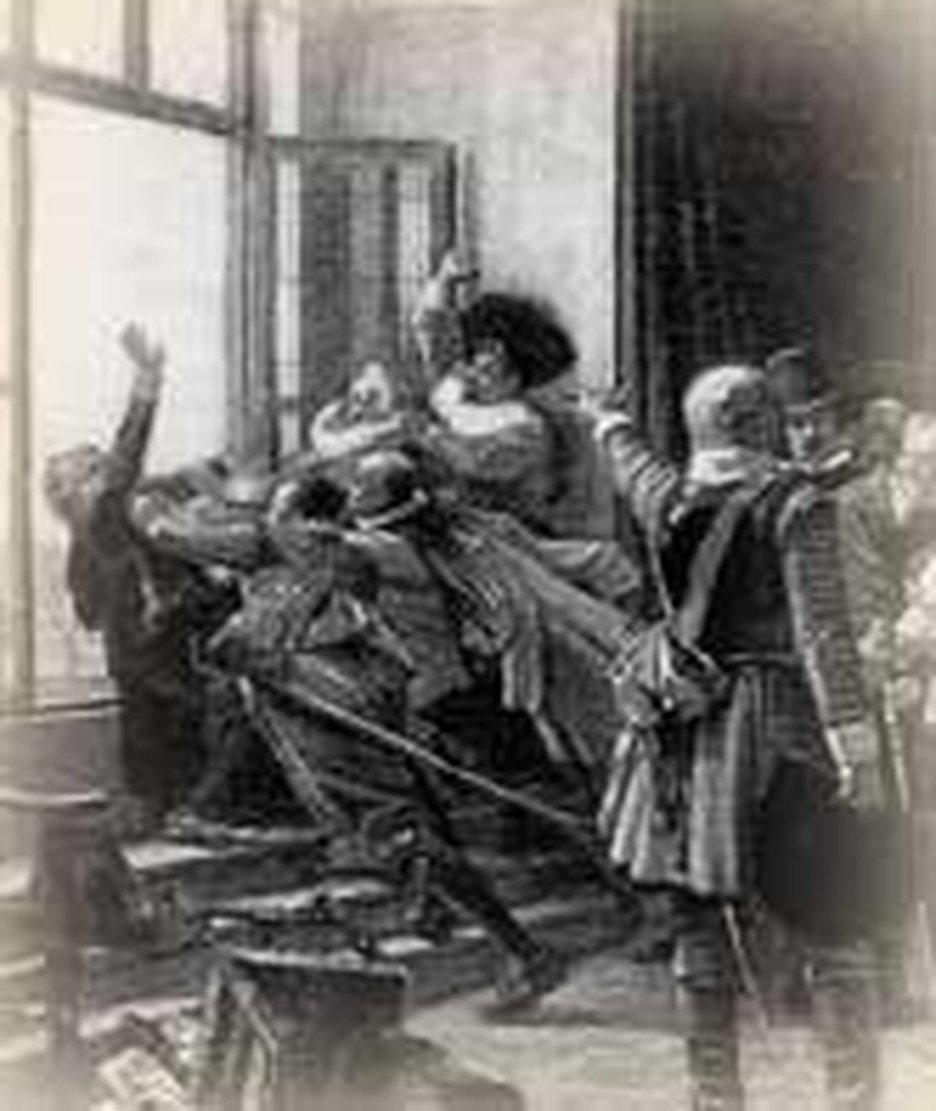
Too many times in history it has happened. A religious minority is promised rights, and then those rights are stolen by supposedly godly men. In desperation the minority rises up, peace is shattered, and bloodshed follows. The terrible Thirty Years' War, which wasted central Europe from 1618-1648, may have been unavoidable, but its immediate spark was just such an incident.
Greater Bohemia, consisting of Bohemia, Silesia, Moravia and Lusatia, had been torn between Protestant and Catholic, German and Slav for two centuries, ever since the martyrdom of the reformer Jan Hus. Although Protestants had a majority on paper, they differed so greatly among themselves as to be a minority. Power resided with the Roman Catholics. Under a Letter of Majesty issued by Emperor Rudolph II, freedom of conscience and worship were granted in Bohemia. This freedom was not total. All Protestants were required to form one denomination. However, they were permitted to build churches in cities which had none.
Rudolph died before an interpretation of the act could be made. Catholics seized various pretexts to forbid Protestants to build churches. Rudolph's successor, the weak and elderly Matthias, placed power in the hands of an ardent Catholic who sought to centralize the government. Matthias' heir-apparent was Jesuit-trained and uncomfortable allowing Protestants freedom to worship in their desired fashion. These trends made Protestants uneasy.
Matthias left Prague. In his absence the area was ruled by regents, many of whom had resisted the Letter of Majesty. They arrested Protestant delegates who came protesting political interference when they tried to build the churches they had been guaranteed.
Under the Letter, Protestants had a right to elect "Protectors" to settle disputes which might arise among themselves and to negotiate with the Catholics. The Protectors gathered in Prague on May 5, 1618, but contented themselves with drawing up a letter to Matthias. They set another meeting for the 21st.
The response from Matthias came back with such rapidity the protectors suspected it had been prepared in Prague and accused the regents of duplicity. The meeting on the 21st turned nasty; the regents presented a letter from Matthias dissolving the assembly of the protectors. The protectors met on the 22nd and there is little doubt they plotted what happened next.
"Defenestration" is from Latin "de" meaning "out of" and "fenestra," "window." On this day, May 23 1618, they flung two of the offending regents and a secretary out a high window, intending to kill them. This was the famous Defenestration of Prague which sparked the war. Fortunately, for the men, who had resisted fiercely, they survived. According to Catholic accounts, Martinitz shouted "Jesu Maria!" as he fell. "We'll see if his Mary can help him!" said a conspirator then exclaimed in astonishment, "By God, she really has!" Some say the mishandled men landed in a soft manure pile. What a foul way to start a war!
Bibliography:
- Asch, Ronald G. The Thirty Years War; the Holy Roman Empire and Europe, 1618-1648. Palgrave, 1997.
- Pagés, Georges. The Thirty Years War. Harper and Row, 1970, 1939.
- Spahn, Martin. "Thirty Years War." The Catholic Encyclopedia. New York: Robert Appleton, 1914.
- "Thirty Years War." The Oxford Dictionary of the Christian Church. Edited by F. L. Cross and E. A. Livingstone. Oxford: Oxford University Press, 1997.
- Wedgwood, Cicely Veronica. The Thirty Years War. Garden City, New York: Doubleday, 1961, 1938.
Last updated April, 2007.








